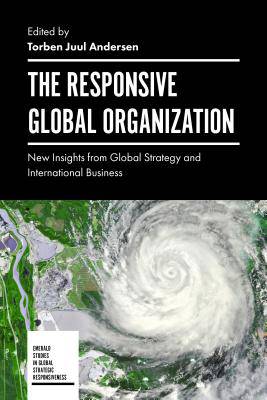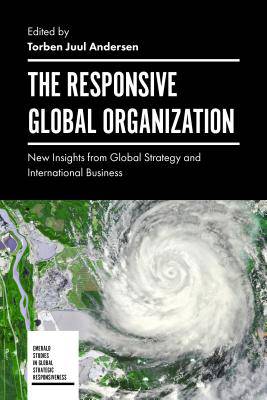
- Afhalen na 1 uur in een winkel met voorraad
- Gratis thuislevering in België vanaf € 30
- Ruim aanbod met 7 miljoen producten
- Afhalen na 1 uur in een winkel met voorraad
- Gratis thuislevering in België vanaf € 30
- Ruim aanbod met 7 miljoen producten
Zoeken
The Responsive Global Organization
New Insights from Global Strategy and International Business
Torben Juul Andersen
€ 199,95
+ 399 punten
Omschrijving
The responsive global organization can adapt business operations across multinational markets in response to unpredictable changes in the turbulent global marketplace. This book deals with different aspects of the effective multinational corporation (MNC) pointing to new ways in which the MNC can enhance responsiveness faced with increasing market turbulence. Drawing on contemporary research in strategy and international business, the book considers relevant aspects including subsidiary autonomy, individual and team engagement, local knowledge, knowledge-based innovation, dynamic integrative processes, cross-cultural management, crisis handling, and the impact of abrupt events.The diversity of multinational business provides many opportunities, but also distinct challenges that must be managed effectively. Here an interactive dynamic between headquarters and local business units is driving responsiveness and adaptive behaviors. Corporate headquarters must structure a multinational organization so adaptive initiatives exploit local market insights where opportunities evolve from autonomous responses around the world. This can entail crisis responses involving both local and corporate efforts as a robust way to handle unexpected incidents. Such interactive approaches constitute a combination of central integration and decentralized local responses as the basis for a dynamic adaptive system. To make this work in a multinational context, we must consider the intricate interplay between corporate values and local cultures, and understand how leadership philosophies influence how diverse employees act as team players and global corporate citizens. The book provides relevant insights on all these important issues.
Specificaties
Betrokkenen
- Auteur(s):
- Uitgeverij:
Inhoud
- Aantal bladzijden:
- 256
- Taal:
- Engels
- Reeks:
Eigenschappen
- Productcode (EAN):
- 9781787148321
- Verschijningsdatum:
- 7/09/2017
- Uitvoering:
- Hardcover
- Formaat:
- Genaaid
- Afmetingen:
- 157 mm x 231 mm
- Gewicht:
- 458 g

Alleen bij Standaard Boekhandel
+ 399 punten op je klantenkaart van Standaard Boekhandel
Beoordelingen
We publiceren alleen reviews die voldoen aan de voorwaarden voor reviews. Bekijk onze voorwaarden voor reviews.








